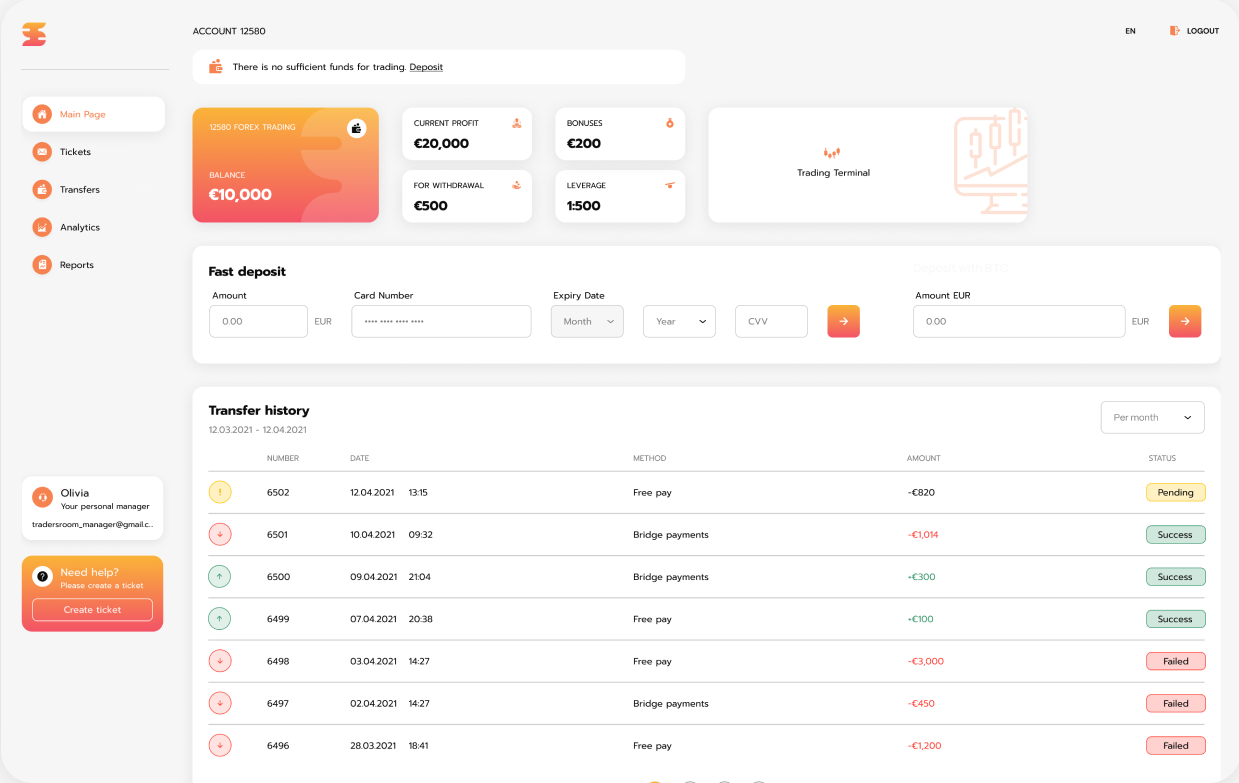
Trading
information
Elevate your trading finesse with carefully curated resources that fuel informed decisions and set you on the path to market domination.
Education
Trading signalsAnalytical centerEducation for tradersProtection guideCustomers
Ways to make a depositWithdrawal ProcessAccount verificationF.A.Q.Trading condition
CompanyHow to start trading?Financial instrumentsMinimum DepositFinancial designationsLoyalty program
VIP clubBonus account systemF.A.Q. BonusesReferral programF.A.Q
General questionsPersonal accountFinancial issuesExchange tradingEducation
Trading signalsAnalytical centerEducation for tradersProtection guideSecurity
CybersecurityAccount protectionSuspicious activityRisk managementCustomers
Ways to make a depositWithdrawal ProcessAccount verificationF.A.Q.Risk management is an important practice in the world of finance, especially in forex trading where the market can be very volatile. Traders must follow certain rules and strategies in order to minimize losses and protect their capital. As a broker, we recognize the importance of risk management and strive to educate clients about its importance.
This section outlines the reasons why risk management is crucial in forex trading and offers effective strategies that traders can employ to protect their investments.
Why is risk management important in forex trading?
Forex trading involves buying and selling currencies for profit. However, given the unpredictable nature of the market, it also involves risks. Prices fluctuate rapidly and without a sound risk management strategy, traders can quickly lose their investment. Effective risk management is vital to controlling and effectively managing finances.
Implementing Effective Risk Management Strategies
Here are some risk management strategies that traders can use in forex trading:
- Stop Loss Orders: Setting stop loss orders allows traders to automatically sell an asset when it reaches a predetermined price. This strategy limits potential losses by closing the trade if the price moves against the trader. It is a common and effective risk management technique.
- Take Profit Orders: Take Profit orders help traders close a trade at a specific level before the market turns. Setting realistic take profit levels is essential for potential profits.
- Portfolio Diversification: A valuable risk management strategy. By investing in a variety of assets and currency pairs with low correlation, traders can reduce their exposure to market volatility.
- Controlling Leverage: Leverage can increase profits, but it also increases risk exposure. Traders should exercise caution when using leverage to avoid excessive risk. It is important to be aware of margin requirements, which may arise if an account balance falls below a certain level.
- Stay informed: Economic, political and social factors have a significant impact on the Forex market. Traders should stay abreast of market news and monitor key economic indicators affecting currency prices, such as GDP, inflation and interest rates.
Risk management is a fundamental aspect of forex trading. Traders should understand risks and have access to effective tools and strategies to manage them. As a broker, we strive to provide the necessary education and support to help clients develop sound risk management techniques.







